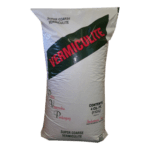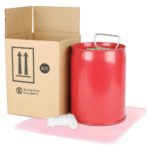 Gasoline Storage and Disposal
Gasoline Storage and Disposal
As the Summer weather arrives and the grass keeps getting taller and taller, the need for gas powered lawn tools rapidly emerges. Whether it’s lawn mowers or trimmers, chances are you will be using these tools often over the coming months. As mentioned in my previous blog, it is important to exercise safety when using these tools, but it is also important to store and dispose of the gasoline properly.
Storing Gasoline
Your local and state governments are the first places you should check for standards and regulations on gasoline storage. For example, fire codes and regulations may restrict the amount of gasoline an individual homeowner can store. In addition, gasoline must be stored in an approved container and should be tightly closed. For example, 29 CFR 1926.155(l) defines a safety can as an approved closed container, of not more than 5 gallons capacity, having a flash-arresting screen, spring-closing lid, and spout cover and so designed that it will safely relieve internal pressure when subjected to fire exposure. It is also important the gasoline container is stored away from potential heat sources such as the sun, a hot water heater, a space heater, or a furnace, and at least 50 feet away from ignition sources, such as pilot lights. Keep in mind that gasoline vapors are heavier than air and can travel along the floor to ignition sources as well. If for some reason you have a minor gasoline spill, it should be absorbed with sawdust, paper, or rags. Larger spills may be contained and collected as well. You should always place recovered gasoline and cleanup materials in approved, labeled containers.
How do I Dispose of Gasoline?
Before disposing of gasoline, it should always be in an approved container as mentioned above. If a container is leaking, place it in a larger leak-proof container that is also clearly labeled with the contents. First things first, you should always check with your local government or hazardous waste disposal center to determine the proper avenues for disposing of gasoline. You should never dispose of gasoline or cleaning materials on the ground or into your garbage, drains, toilets, or sewers. Improper disposal of gasoline may cause a fire, or seep into streams, bays, lakes, and even your groundwater. If you have gasoline that was somehow contaminated, depending on the condition and how old the contaminated gasoline is, it can possibly be reconditioned and used in cars, trucks, lawnmowers, and other engines. Contact your local hazardous waste disposal facility or fire department to find out where and when you can drop off gasoline for disposal. Many communities have programs that accept hazardous materials for safe disposal.
Be prepared, , check out our line of spill containment kits and absorbent pads. Or you can contact our team of experts at 855.734.5469 or send us an email, we are happy to help.
Stay up to date and sign up for our newsletter!
We have all the products, services and training you need to ensure your staff is properly trained and informed.
 Absorbents & Cushions Absorbents & Cushions |
 Fuel Shipping Kit Fuel Shipping Kit |
 Shipping Hazardous Materials by Ground |
Sources:
https://www.dec.ny.gov/docs/materials_minerals_pdf/gasoline.pdf
https://www.osha.gov/laws-regs/standardinterpretations/2004-01-29-1






 ICC USA
ICC USA ICC Canada
ICC Canada